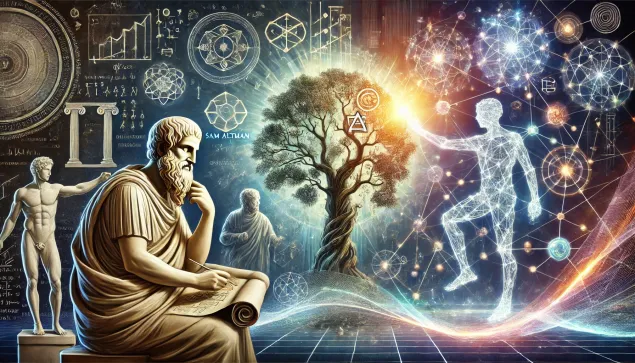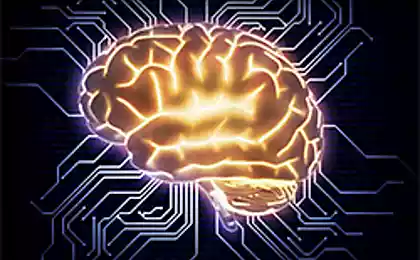220
From Aristotle to Altman: Why “emergence” is a key term for understanding AI

The idea of “emergence” – the phenomenon in which the whole is greater than the sum of its parts – has always been an important topic in philosophy, science and artificial intelligence. In recent decades, the concept of emergence has become an integral part of conversations about AI because it helps us explain how systems composed of simple elements can exhibit complex and unpredictable behavioral patterns. This could be the key to understanding how artificial intelligence develops its capabilities and what consequences it could have for humanity. From Aristotle to modern scientists like Altman himself, emergence remains a key concept for explaining not only natural but also artificial systems.
Ecology of Thinking: Philosophy and Emergence
The concept of emergence was popularized in the philosophy of Aristotle, who expressed the idea that the whole is always greater than the sum of its parts. Aristotle believed that complex phenomena and structures can arise from simple interactions of elements, and this phenomenon has continued to inspire scientists for centuries. This idea developed in the twentieth century, especially in the context of systems science, chaos theory, and neuroscience.
Philosophers and scientists have noticed that many complex phenomena cannot be explained by a simple analysis of their constituent parts. Instead, these phenomena have properties that arise only from interactions between the elements of the system. Emergence, as a key concept, helps explain how phenomena such as consciousness, biological life, or even artificial intelligence can emerge from the interaction of relatively simple elements.
Emergence and Artificial Intelligence: From Theory to Practice
When we talk about artificial intelligence, emergence becomes an important term to describe how AI can evolve and how it can achieve the level of autonomy and intelligence we see today. Machine learning, for example, creates complex models and networks that learn from vast amounts of data. These networks can identify patterns and generate solutions that no one would have predicted in advance. In this context, emergence manifests itself as the ability of AI to self-learn and the emergence of new, unexpected patterns.
1. Aristotle and the basic principles of emergence
Aristotle was one of the first to propose ideas that formed the basis of the modern theory of emergence. In his writings one can see reflections on how complex organisms and phenomena can emerge from the interaction of simpler elements. For example, he argued that a person’s life and soul are not just the sum of his body parts, but something more that arises in the process of their interaction. This principle will be further developed in the works of scientists and philosophers, including in the context of AI.
2. Emergence and artificial intelligence: approaches of modern scientists
Modern researchers and scientists, such as Altman himself, see emergence as an important aspect in the development of AI. Altman, as one of the leading experts in the field of AI, emphasizes that systems based on machine learning can create results that cannot be predicted simply by analyzing raw data. These unexpected and complex results become a prime example of emergence in artificial systems.

Emergence as the key to understanding AI
When we talk about emergence in the context of AI, we mean that the intelligence that manifests itself in machine systems goes beyond simple algorithms and programming. Machines are beginning to identify patterns and make decisions that may not have been foreseen by their creators. This can be both a positive aspect and a challenge for the future development of AI.
3. Emergence in Neural Networks and Machine Learning
Neural networks are one of the brightest examples of emergence in AI. These systems can “learn” from data, improve their predictions, and even predict events that were not in the original data. What emerges in these systems is a new level of intelligent solutions that can go beyond the original program. It is this ability of machine systems to learn and generate new patterns that makes them so powerful and unpredictable.
The future of emergence in AI: challenges and opportunities
The future of artificial intelligence and its emergent abilities is both optimistic and apprehensive. On the one hand, emergence can lead to the creation of truly autonomous and intelligent systems capable of solving complex problems. Emergence, on the other hand, also opens the door to unpredictable consequences and challenges that may require a new approach to AI regulation and ethics.
Conclusion
Emergence is an important concept that helps us understand how simple elements can produce complex systems with unpredictable properties and behaviors. From Aristotle’s philosophy to modern advances in artificial intelligence, the term remains key to explaining many phenomena, both in nature and in the world of technology. Understanding emergence will help us better understand the nature of AI and how artificial systems can change our world.























